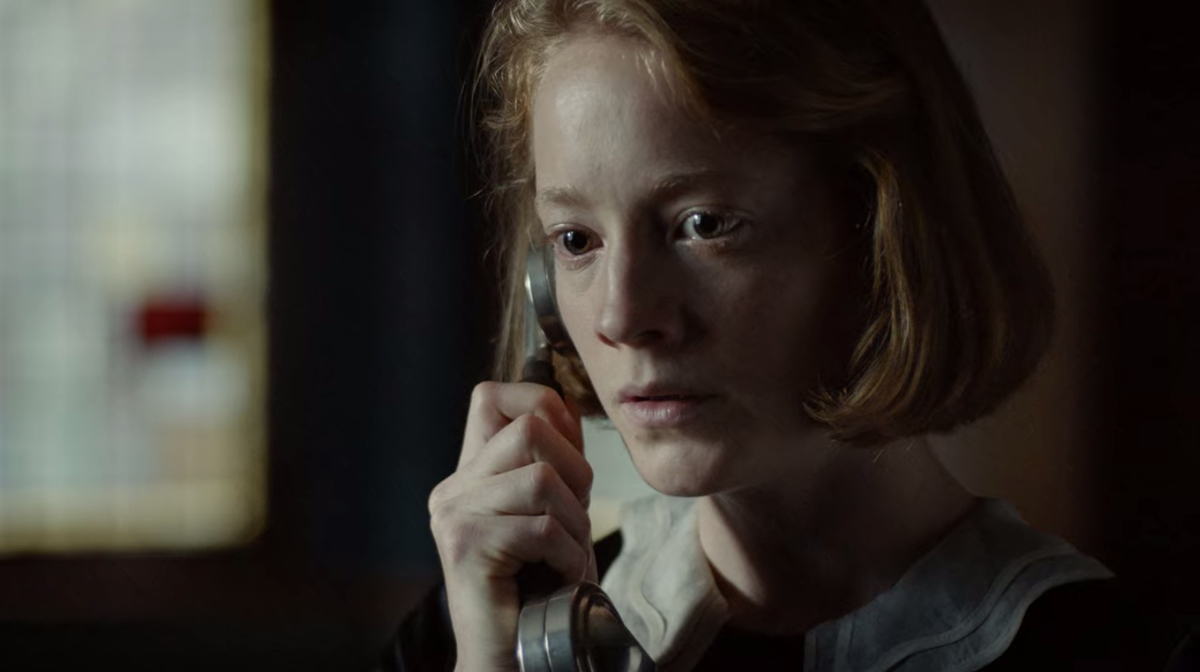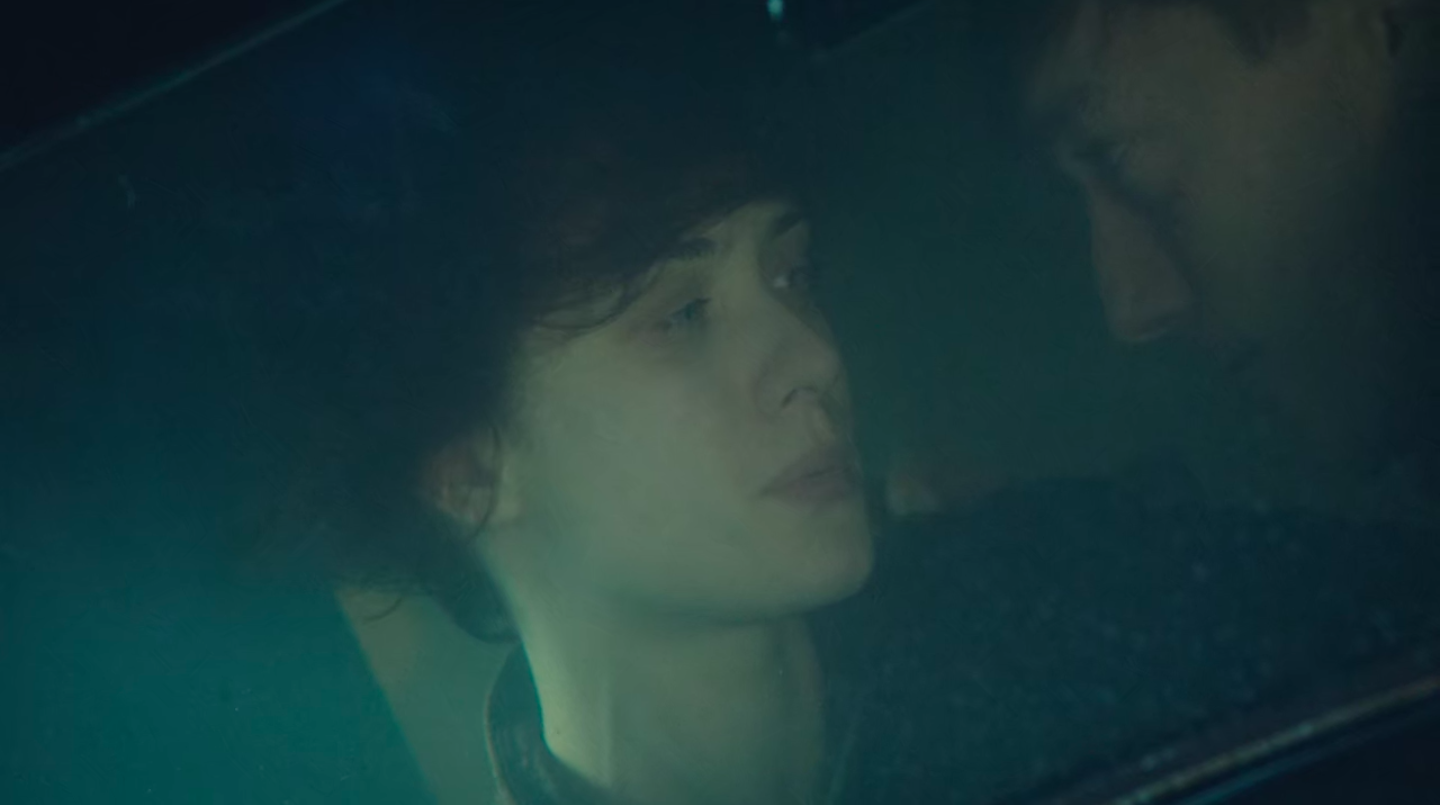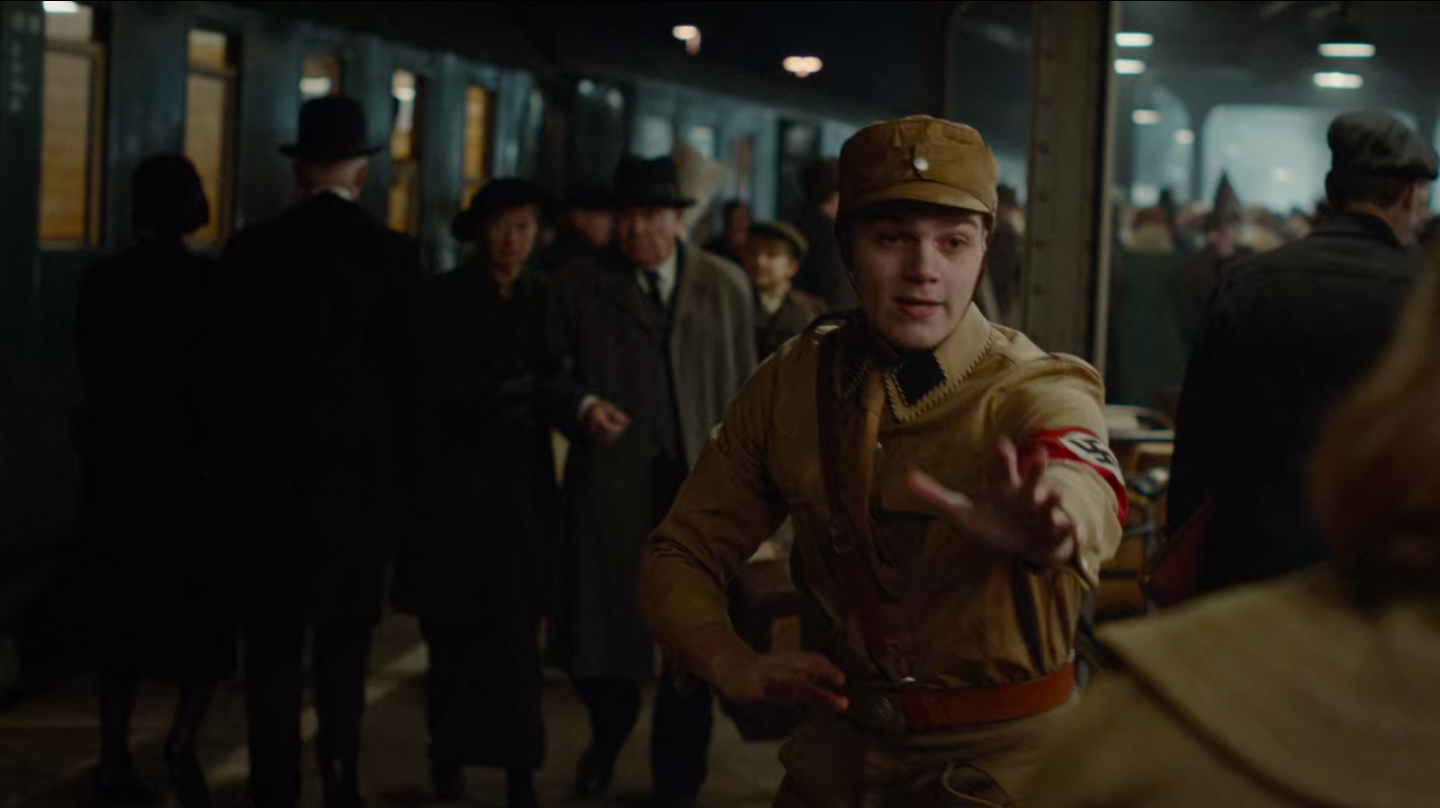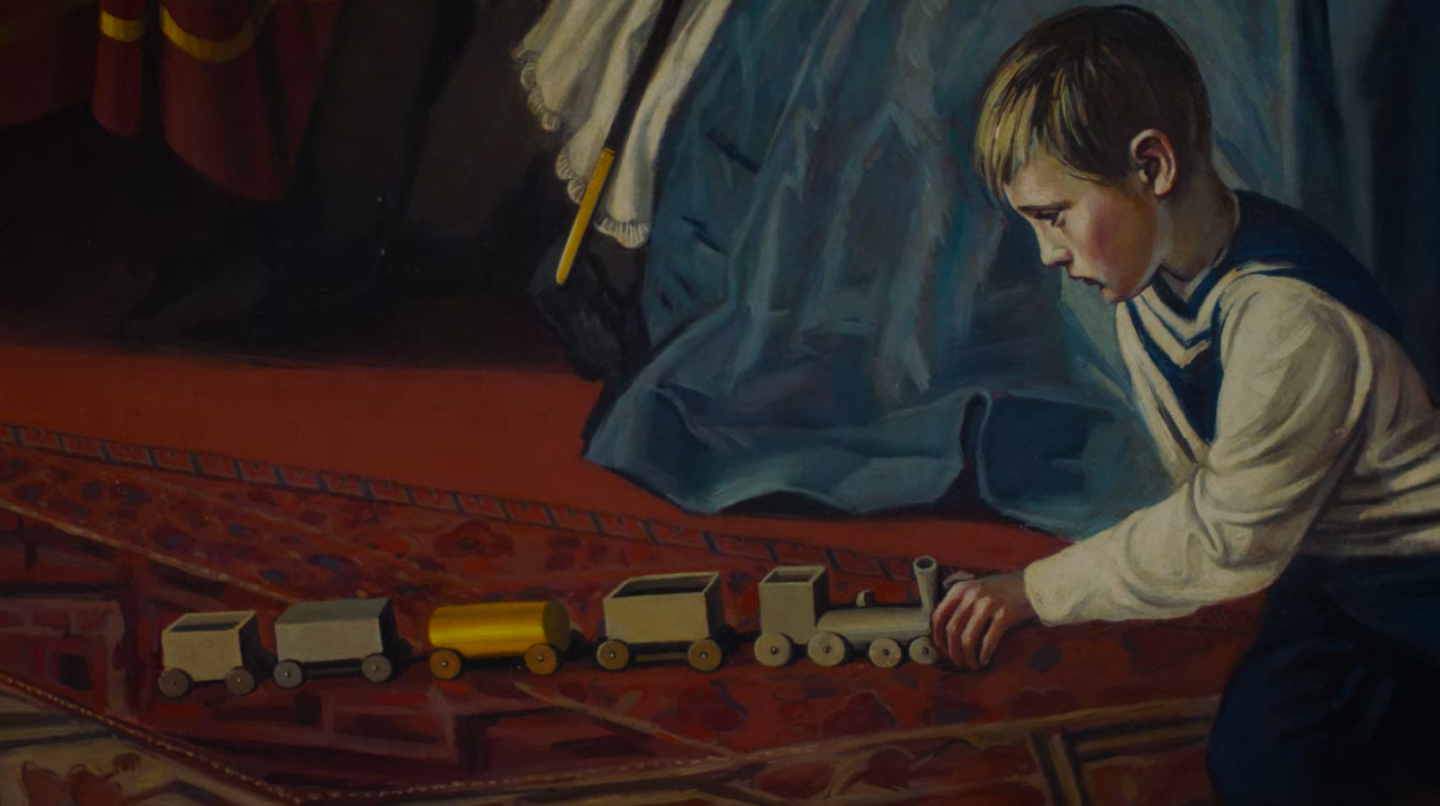Babylon Berlin: "Episode 15" and "Episode 16" (with Kathryn VanArendonk)
In which ... can we call this kissing?

(For the foreseeable future — aka as long as this quarantine lasts — Emily will be watching the critically acclaimed German drama Babylon Berlin, a neo-noir set in 1929 Germany. The series is available on Netflix in the United States. For every installment, she will be joined by a special guest. Today’s guest is Kathryn VanArendonk, whose writing at Vulture got Emily interested in this show in the first place. Find her there or on Twitter.)

Emily: After two full seasons (technically one, but we’ve been over this) devoted to political machinations and a mystery that slowly came to encompass all of Berlin — remember that mysterious film Gereon was trying to track down? — Babylon Berlin’s initial storyline ends with a fireball, some light mouth-to-mouth resuscitation, and the first appearance of the Nazis, here presented as a rather ribald street gang, nothing to be worried about, carry on!
Oh, right, also Benda died? A thing I knew was coming — because no way was that whole Greta plotline not culminating in something like that — but a thing that still left me reeling for how thoroughly the show went out of its way to suggest it might not. (Plus, the pointed mention of vermin from his successor suggests Gereon’s new boss might broadly sympathize with a very particular ribald street gang.)
Also: Gereon testified that the police were shot at back on May Day (remember that?), Helga did something with Nyssen that I’ve already forgotten, and Dr. Schmidt revealed himself to maybe, possibly be Gereon’s long lost brother. (I don’t trust this reveal to be accurate, but it probably is.)
That’s a hell of a lot to cram in to two episodes of television — and I haven’t even gotten to all the reveals in re: the train of gold — but these two hours not only move like a, uh, train of gold but also wrap up nearly everything you’d want to see wrapped up in a season finale. They’re nearly perfect little—
OH SHIT GEREON AND LOTTE KINDA MADE OUT IF YOU CONSIDER MOUTH-TO-MOUTH RESUSCITATION MAKING OUT WHICH IT ISN’T, BUT I DEFINITELY THINK THAT GEREON BREATHING INTO HER MOUTH WITH HER CONSENT IS IN THE NEIGHBORHOOD OF MAKING OUT AND WOULDN’T ALL OF YOU AGREE?
What I’m saying is the look Gereon gave Lotte as she was put in the car back to Berlin in the finale made me at least 2 percent more heterosexual.
Kathryn, you are this show’s greatest cheerleader in the American press, and your article on the show from March, when we could all leave the house, convinced me that I had to watch it, after years of badgering. You mention in the article that there were reveals in these episodes that made you say, “This show,” and I’m wondering what, specifically, those were, and also if you think mouth-to-mouth resuscitation counts as making out.

Kathryn: Emily, first, thank you for welcoming me to this fantastic rolling Babylon Berlin party you’ve hosted so thoughtfully for the last several newsletters. I have to say it’s a bit surreal reading so many of your guests writing so passionately about it, because as you’ve suggested, this is a very lonely cause I’ve been championing for lo these many months and it’s just so nice to finally read all these people shouting about how great it is. I’m hardly the only American viewer of this show — our friend Alan Sepinwall and my former NYMag colleague Adam Sternbergh have also been fans of it forever, and a few members of the Vulture comedy team are also on this bandwagon.
But my most intense experience of this show will always be the sensation of watching these two episodes. I’d been very sick with the flu, and I remember sitting on my bed and ripping my hair out because I did think Charlotte might actually be dead?? In my defense I was very ill, because there was no way she’d actually died … but maybe? And then riding the wild rollercoaster of this season two finale, which includes the unbelievable tragedy of Benda and his daughters’ death, the sharp hairpin turn into the discovery of Sorokina’s heritage, the hilarious fantastic twist that the train itself is made of gold, and then that final hit of Gereon’s brother being Dr Schmidt? I was elated and shaky, and I remember thinking to myself, “the entire fucking train is made of gold, and I am the only person in the world who cares about this enough.”
Again, I’d had a fever for days. But that’s the sensation that’s always stayed with me about this show. It’s my absolute delight in watching it turn and skid and curl back on itself, leading us down these pathways of certainty, making us dread them, fulfilling all the things we’re afraid will happen, and then doing a swan dive into some entirely other place we could not see coming. And making it seem so easy!
To get to your most important point, I am afraid I have bad news. I do not think that mouth-to-mouth resuscitation after being rescued from the perilous brink of drowning, very shortly after also nearly freezing to death, counts as making out. It definitely counts as something! Something very important and emotional! But no, not making out.
Emily: Wow, it’s really a hard thing to realize, at this point in our friendship, that you don’t believe in love. I will be marking that down in my ever-evolving file on you.
Broadly speaking, these two episodes belong to my very favorite type of season finale: the “revelation after revelation!” finale. It’s very hard to do this type of finale well, because in order to pull it off, you have to construct a very engaging story across all of the other episodes, then pull back the curtain to reveal not just one but many big revelations that upend the series as we know it so far. (Also, that my beloved punching bag/pincushion Kardakov is absolutely still alive.)
My favorite version of this is probably still Buffy the Vampire Slayer’s own season two finale, “Becoming, Part 2,” which picks up a whole bunch of balls and runs with them, bringing us to a place where it becomes all too obvious that there’s only one way the story can end and only one way the characters can behave, but also surprising us with that information. Oh, of course Buffy would sacrifice Angel to save the world. Of course Willow is a super witch! Of course, of course, of course.
This kind of finale makes it feel like everything in a season was planned from the first, while simultaneously having a loose, improvisational quality. And to be sure, the Babylon Berlin team had a book they could lean on when creating this season of television, but they still had to calibrate the reveals precisely, so the bombs could go off exactly as they need to in these two episodes (including one quite literal bomb and then an exploding train car).
(Sidebar on trains: I love how there’s that brief shot of the fake gold brick hitting the side of the train and revealing a yellow scuff mark, and you think it’s the paint coming off on the train and not the train itself, but if you’re really thinking about it, you can totally guess the solution to the season’s biggest mystery in that moment. Amazing!)
If there’s an element I maybe thought ended up being a little lackluster, it’s the final battle between Gereon and Bruno, which includes some somewhat unfortunate effects work (though I chose to see the weird projection issues as an homage to German expressionism and so there) and a very rote chase. But it ends, again, with an exploding train car and some gorgeous shots of Gereon framed against the darkening sky. So I can’t complain too much, now can I?
But I want to talk about my favorite shot, which is that swastika armband-clad man running in from just offscreen to collide with Greta in a moment that reminds us of what lies in the immediate future in a way that Greta cannot understand. I am truly impressed with this series for waiting this long to deploy the Nazi card, and it makes total sense that Fritz and Otto (who mentioned Hitler back in season one — Adolf’s only mention in the series so far) are involved. But I want to know what you think about the evocation of this particular historical horror and also about what the series is using Fritz and Otto to symbolize. Because for as much as I like this idea… I’m really not sure what they’re supposed to mean.

Kathryn: For me, Fritz and Otto mean something I’m sure Babylon Berlin doesn’t really intend, which is that I sadly knew very little about the specifics of the political situation in Germany at this particular moment.
I understood the swastika on the armband, of course. And I assume that if I knew more about the period, I’d be able to come away with a much heavier awareness of the “GUYS NAZIS ARE COMING” foreshadowing. But instead, in part because of my own ignorance, these first two seasons do the same thing politically that they do with plot. Babylon Berlin goes heavy on political specifics — the May Day riot, the various factions struggling for power, the role of someone like Benda trying to navigate a moderate path — but the twisty cloudiness of it all is compelling and obfuscating.
I got very looped into the stories for each character, in their own narrow paths and motivations. It’s shockingly easy to forget that this is fucking Germany between the wars! GUYS. NOT SURE IF YOU REMEMBER, BUT NAZIS ARE COMING.
So that’s what Fritz and Otto are, for me. Walking plot reveals. They combine old-school “he’s wearing this uniform; no wait it’s the bad guy’s uniform!” story developments, like unmaking the villain in Scooby Doo with the show’s vested interest in making you forget about Hitler. At least for a little while.
It’s funny; in these newsletters you’ve been talking about how much the show is hemmed in by history. It’s like any historical story. On the one hand, it needs to follow along with a well-known historical trajectory, but on the other, it works best if it can persuade the audience to temporarily forget that trajectory. I think Babylon Berlin is so good at it because of all the plotting stuff we’ve already touched on, but also because the whole world feels desirable and impossible.
That early scene in the Moka Efti, the “Zu asche, zu staub” number — from that moment, even though we all understand that this is Berlin before WWII, part of us wants this to stay, somehow. It’s so incandescent. The armbands are the reminder that it cannot stay. There have been a billion other reminders, obviously. The Moka Efti was smashed to pieces! Benda blew up! But the armband is the moment your brain goes “oh right. This really all is this surreal dream that many people in Berlin managed to all have at the same time, but now we have to wake up.”
Emily: Right! I’ve been thinking about this in terms of queer identities (of course), because one of the great tragedies in the history of trans people is the Nazis’ destruction of Institut für Sexualwissenschaft, where groundbreaking research into our identities was taking place. If that doesn’t happen, do trans identities become mainstream much more quickly? It’s not hard to reach that conclusion.
And queerness lurks at the edges of so many frames of Babylon Berlin, but so do Jewish identities and others who would ultimately be ground up by the rise of Nazism. That’s what makes the image of Greta — employed by the show’s one major Jewish character — literally seeing the arm of a Nazi beckoning her into the future so potent. She has, knowingly, helped someone murder Benda, because she’s upset about what turns out to be a lie. But she has unwittingly helped further a movement that should have been stopped right there. It’s not hard to create a larger symbolic read of that character’s story that makes the show coalesce in a way that ended up being satisfying to me, despite my complaints about her all season long.
The same goes for our brilliant and beautiful duo, as unqueer as two cis-hetero normies who just wanna kiss (even if they won’t) can possibly be, Gereon and Charlotte. I like the way the finale forces you to confront that even if Gereon “saves the day,” by ultimately defeating Bruno, he’s still kowtowing to larger forces that cause him to do the wrong things, over and over and over again. He is being painted into a corner, one that we in the audience can see but that he cannot, and the ways in which he’s being pushed there are instructive to all of us living through this moment in history.
Charlotte, meanwhile, is someone whose legitimate attempts to push things forward — by becoming the first female homicide detective in Berlin! — also end up working for an organization that will only hasten the rise of something truly evil. I do wonder sometimes if Babylon Berlin is saying there’s no way to stop the rise of fascism once it’s well and truly begun, or if it’s saying there’s no way for these characters to stop it. But it is really not too hard to imagine those of us watching this show looking back at it in, say, 20 years and realizing that we were Gereons and Charlottes, so obsessed with our own personal accomplishments and goals that we missed the forest for the trees.
What do you think about what this season ultimately had to say about these two and what can feel (to us) like a stunning historical myopia? And, at long last, let’s talk about that fucking train of gold, because that’s another really rich symbol.

Kathryn: GOLD TRAIN!! It’s a “rich” symbol, oh ho ho.
Yes, the show does so much with masking and costuming, hiding things in plain sight, often underneath layers of other identities. Nikoros/Sorokina has been hiding as a drag king performer, supposedly to cover up her real identity as the lost daughter of this family of Russian aristocrats. But she’s not, she’s the daughter of the family’s chauffeur who betrayed them to the Bolsheviks. Drag performer / countess / Bolshevik.
We get the same flip-flopping pattern with the train — train’s full of gold / the gold inside the train is false / the train itself is made of gold. But the absurdity of the train itself being a giant golden boxcar is also plenty suggestive and delightful on its own. It becomes a toy, somehow, or an ornament, but it’s also money literally made mobile, a family’s inheritance that manages to hide itself in the freedom of being able to dance around out of everyone’s reach. Gold train is the Russian aristo version of offshore banking, I guess.
As in so many hetero relationships, I feel, the problem with Charlotte and Gereon is that Charlotte is doing her best to get her shit together and grapple with the realities of the world, and Gereon cannot seem to deal with his feelings. Sure, yes, the guilt over abandoning his brother to die and then falling in love with his brother’s widow, and also just general war trauma … okay, it’s a lot. Once the brother comes back? Yeah, Gereon’s dealing with some stuff. I can see that. But Gereon’s inability to adequately understand his own emotional state, this total refusal to reckon with all these feelings he’s sublimated — it’s really getting in the way of the kissing! Get it together man!
On the grander political scheme, yes I think you’re right that Gereon in particular becomes a direct moral query about the responsibility for individual action in the face of rising fascism. That moment when we realize Wendt has seized power and Gereon will need to work alongside him is so upsetting. Wendt’s an excellent Bad Guy, and it’s scary to know he now holds so much more power! The scarier thing, though, is this uncertainty about what Gereon’s going to do. We want to assume he’s going to work against Wendt from the inside, but if my dude Gereon has proven anything, it’s that he’s kind of a mess! Show me a guy this guilty and unsure of himself, and I’ll show you a guy ripe for blackmail and coercion.
Which leads me to my final point about what I love about the end of this show. I love TV. It is not the same as a limited series. Don’t get me wrong! I will happily gobble up a great limited series any day of the week, but Babylon Berlin completely commits to the full, rolling, improvisational messiness of great serial television, and you can see it so clearly in this last episode. When I watched it two years ago, there was no clarity about whether there’d ever be more of this show. It must’ve been so tempting to neatly tuck in all the ends, to give it a nice pat on the back, and call it a day.
Emily: Yes! For as much as I found the Anno reveal preposterous on its face, I felt so happy that it was that preposterous. It’s the sort of thing you might have seen in the heyday of the antihero drama — a soapy, melodramatic twist turned so inward on itself that it becomes weird and haunting. Perfect? Heavens no. But amazing television.
Thank you for joining me, Kathryn — and thank you for turning me on to this show in the first place. Where can the Babylon Berlin faithful find your work, if they don’t already know?
Kathryn: Emily, thank you so much for having me, and I want to just say again: thank you so much for putting this newsletter together. It is one of the things that’s really made me happy over the last several weeks.
You can find my work at Vulture, which is a publication from within your own parent organization Vox Media! I write: TV reviews, stand-up comedy reviews, rants, interviews, profiles, features, recaps, close reads, and weird brainworm analysis pieces about Quibi? I guess? I also have a weekly TV podcast with my two lovely friends Margaret H Willison and Andrew Cunningham. It’s called Appointment Television, and we try to do a fun mix of newsy stuff, bigger state-of-TV conversations, and specific TV deep dives.
Emily: Everybody reading this should read as much of Kathryn’s work as they possibly can and/or follow her on Twitter. She’s one of my favorite people writing and thinking about TV right now!
And join me next week for the first two episodes of season three! With an extremely special guest…




